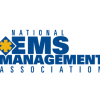This article originally appeared in the March newsletter of the National EMS Management Association and is republished here with permission.
By John Chamberlin, NEMSMA
When I reflect on situations with kids to express workplace or leadership issues, I do not intend to insinuate that treating staff members as children is a good concept. However, I do believe that parent leadership experiences can lend themselves well to work or professional leadership scenarios.
That said, when my kids were young, I used to order them to clean up their toys with a “because I said so” kind of attitude. One day, the living room was filled with toys and whatever other hazardous materials, like Lego blogs that are the same color as the carpet, that children generate throughout their waking hours. A neighbor came knocking on the door needing some assistance and I invited them in to talk. I’m fairly certain that I took the first 10 minutes of our conversation profusely apologizing for how messy the house was.
The next day, I sat my kids down and explained to them why we were going to clean up the house and continue to keep the house from being a den of total chaos … because we never wanted to feel that embarrassment again. While the results weren’t perfect, the process of cleaning up after ourselves quickly became a habit.
Once my kids understood why we should keep the house from becoming a total disaster, the better the compliance to the rule was.
EMS leadership approaches
Think of this in the workplace. As a leader, do you use a “because I said so” attitude in your leadership or do you take a few extra minutes to explain why something is going to be done a certain way?
- “Start filling out this new signature form, or else you’ll get dinged on your evaluation.”
- “Hard copies of your vehicle checks must be scanned and emailed to the supervisor by 0900 each morning.”
Neither are bad approaches. They are certainly giving clear direction. However, think of the personality types of your EMS staff – you know, the Type As that always wonder “What’s the next big thing that’s going to be handed down from management’s Mount Olympus office?”
Wouldn’t it be better to let them know why?
- “Compliance with the new signature from has been low. We need to have those forms signed. If they are not signed, the billing office has to ... ”
- “Hard copies of your vehicle checks must be scanned and emailed to the supervisor by 0900 each morning. That way, in the morning supervisor’s meeting, they can determine if you need any medical or office supplies immediately, they can add your restocking to their rounds that day.”
Keep in mind, I’m not saying that you have to spoon feed employees. They are professionals and should operate as such. I’m not a trophies-for-everyone kind of person. However, a little information about the importance of why can go a long way for leaders, in achieving a better relationship with your staff, a better understanding on their part of the business side of the house and, compliance … which will eventually give you less grief.












